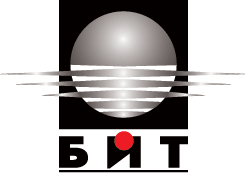 The University of Library Studies and Information Technologies(ULSIT) is a state university, renamed by Parliament Decree on September 29, 2010 and is the successor of the Specialized Higher School of Library Studies and Information Technologies, voted as such by the National Assembly in 2004; The State Library Institute, established in 1950; the Semi-Higher Institute of Librarianship; the College of Library Activities (CLA) and the College of Library Studies and Information Technologies (CLSIT).
The University of Library Studies and Information Technologies(ULSIT) is a state university, renamed by Parliament Decree on September 29, 2010 and is the successor of the Specialized Higher School of Library Studies and Information Technologies, voted as such by the National Assembly in 2004; The State Library Institute, established in 1950; the Semi-Higher Institute of Librarianship; the College of Library Activities (CLA) and the College of Library Studies and Information Technologies (CLSIT).
ULSIT provides education in bachelor, master and doctoral programs for the educational and scientific degrees for which it has accreditation.
The University of Library Studies and Information Technologies (ULSIT) is among the leading educational and academic institutions in Bulgaria, which prepare specialists with theoretical knowledge and practical skills to work in various fields of public life. ULSIT has as its strategic goal to prove its identity as a leader in the education of cultural and historical heritage, library science, printed communications, tourism information resources, communications and information, information technology, public policies and practices, thus declaring the desire for full participation in the formation and implementation of state educational policies. In recent years, the university has established itself as a leading training centre for research in various fields of science. At ULSIT, the positive connection between research and higher education is built on the basis of innovation, shared experience, research, knowledge and skills of each of the participants in the process of knowledge creation and management. This is due to the fact that today in the structure of ULSIT successfully operate various research institutes:
- University Youth Knowledge Academy (UNYKA) – the Academy for Knowledge Management is a modern university alternative educational model that enables young people in ULSIT to organize their scientific and educational activities in accordance with both the university curricula and with their own desires and interests;
- Institute for Research and Training of Doctoral Students (IRTDS) – the mission of the Institute is to create and disseminate new knowledge and new scientific and applied products, to ensure continuous development of research and applied science, to form a constantly self-learning and improving academic a community that sets new standards in research and continuing education of elite personnel, stimulating the development of tolerant scientific interactions in accordance with national, European and universal norms and values;
- Institute for Scientific Research, Organization, Management and Protection of the Cultural and Historical Heritage (ISROMPCHH) – the main subject of activity of the Institute is the conduct of interdisciplinary scientific research in the field of cultural and historical heritage; organizing and conducting annual summer universities and student workshops; organization of specialized master’s programs; implementation of cooperation and partnership with research, educational, state, local and other organizations in the country and abroad;
- Institute for Research and Development of Leadership in the Information Environment – the main subject of activity of the Institute of Leadership is the implementation of long-term research in the field of history, theory and practice of leadership. The main tasks of the Institute are: research, educational-methodical and consulting.
The establishment of all the above-mentioned institutes in the structure of ULSIT contribute to the building and formation of the successful policies and practices that ULSIT has been implementing over the last decade. Through their programs, the Institutes in the structure of ULSIT open new perspectives for the students, contribute positively to the fast and full implementation and assimilation of the modern information and communication technologies in the educational process. Thus, by actively participating in the training, ULSIT strives to meet the public needs and interests of the Bulgarian and European labour market.
Many years of experience in organizing and conducting research work related to research in the social sciences and humanities is due to its institutional capacity and modern facilities, with potential opportunities for the use of modern information and communication technologies in teaching and independent preparation of students – bachelors and masters, PhD students, postdoctoral students, postgraduates and young scientists.
The institutional capacity of ULSIT is also expressed in the human resources and the availability of useful and sustainable relations and contacts with a wide network of educational, cultural and scientific institutes. ULSIT actively participates in the international professional life, carries out international cooperation under bilateral agreements with other educational, scientific and cultural institutions in Russia, Germany, France, Poland, Serbia and Montenegro, Turkey and others. ULSIT is a member of IFLA – the International Federation of Library Associations and Institutions, LIBER – the Association of European Research Libraries, ICOM – the International Council of Museums, the National Technical Committee for Standardization in Archives, Libraries, Information and Publishing (TK 16), in Bulgarian Library and Information Association.



